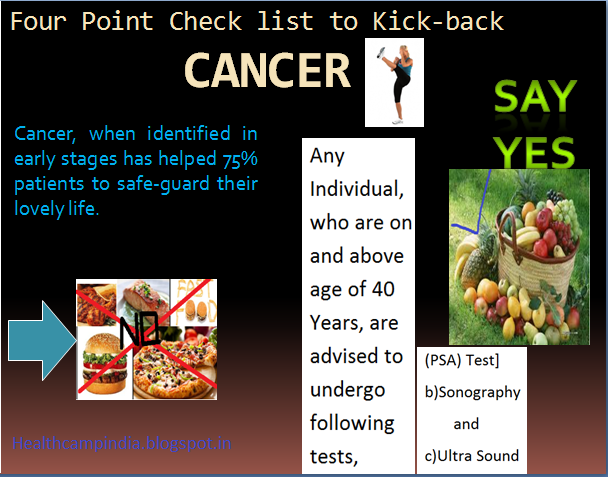Showing posts with label living with cancer. Show all posts
Showing posts with label living with cancer. Show all posts
Tuesday, 11 March 2014
Monday, 12 November 2012
Living With Cancer
American essayist Susan Sontag called cancer the disease
“that doesn’t knock before it enters”. But as cancer cases are rising,
to a large extent because of increased longevity, people are learning to
anticipate this knock.
The World Health Organization estimates that by 2020, every family in
India will have a cancer case; some others believe one in six or eight
Indians will have cancer in their lifetime. These are statistics that
should keep the public health policy makers up at night. On our part, I
think it’s more important that we become aware and informed about the
disease and the fact that it’s possible to ‘live’ with cancer, rather
than succumb to the idea of ‘dying’, which cancer has come to symbolize.
So when a start-up, Invictus Oncology, decided to bring thought leaders,
researchers and practitioners in the field of cancer to brainstorm in
Delhi, it appropriately titled the symposium, “Living with Cancer”.
Who better to kick off the evening than Siddhartha Mukherjee, a
practicing oncologist from the Columbia University Medical Centre and
author of the Pulitzer prize-winning book The Emperor of All Maladies?
Even though most of us came away moved, philosophically and
scientifically educated after reading his book (it has sold more than
half a million copies and is being translated into 20 languages),
watching him sum up the entire history – from 4500 BC to date — in 25
minutes was like an illuminating crash course.
It evoked mixed feelings –
of fear, awe, alarm, optimism, and much more. Mukherjee’s lines from
his book rang truer: “…We might as well focus on prolonging life rather
than eliminating death. This war on cancer may best be won by redefining
victory.”
Up until the 1970s, cancer was seen and known as a disease of cells
that could be killed by poison (Mukherjee calls chemotherapy drugs as
poison). A cancel cell is a perversion of the normal cell. Between 1970
and 1990, as science progressed, a new idea took shape – cancer as a
disease of the genes. That every cell has a combination of accelerator
and decelerator genes and when normal genes get distorted, cancer
invades.
Further advances in genetics and allied technologies, between 1990
and 2000, showed that cancer was a disease of genomes: it was not one
gene but many genes that got altered in this disease. How many? We are
still figuring that. While there are deep commonalities between cancers,
yet each cancer is unique. And the challenge before practitioners is
how do you personalize the treatment (or trials) when the complexity is
so huge? “How do you categorize a human face?” asks Mukherji.
From 2010 onward, Mukherjee believes, a new face of cancer is
emerging: it’s a disease of the organism. By “organismal”, he means a
disease that encompasses much more than cells and genes – physiology,
environment and, above all, community. In his book he says: “In writing
this book, I started off by imagining my project as a ‘history’ of
cancer. But it felt, inescapably, as if I were writing not about something
but someone. My subject daily morphed into something that resembled an
individual—an enigmatic, if somewhat deranged, image in a mirror.”
This descriptor fits well when you think of the survivors: in
battling “an organism”, they need the support of the entire community.
We heard two fascinating stories on Friday, of actor-model Lisa Ray and
Nobel laureate Roger Tsien.
Tsien’s talk was inspirational for many reasons. A professor of
pharmacology at UCSD, he shared the 2008 Nobel Prize in chemistry.
During two meetings in 2009 and 2010 at Lindau in Germany I had heard
him speak about his colourful palette of proteins derived from jelly
fish and corals which he has been using to look at hitherto inaccessible
cells and tumors.
Between July 2010 and now, he was diagnosed with
prostrate cancer, got it treated, and is now back to advancing his work
and “delivering talks” around the world! You can hear him talk about his
famous green fluorescence protein
Wanna, buy Siddhartha Mukherjee 's book, The Emperor of All Maladies? -A Biography of Cancer
Subscribe to:
Comments (Atom)



